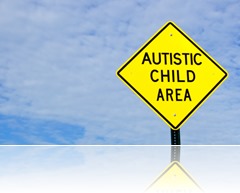Two recent studies suggest that select medications during pregnancy may increase the risk of autism in the child.
The first study looked at the use of antidepressants during pregnancy in a Swedish study. The records of 4,429 children who had been diagnosed with autism spectrum disorder (ASD) were reviewed and compared with 43,000 age and sex matched controls. In women who had history of depression and used a prescription antidepressant during their pregnancy, an increased risk of ASD was observed. The association was similar in both serotonin reuptake inhibitors and non-selective monoamine reuptake inhibitors (tricyclic antidepressants) and was specifically in ASD without intellectual disability. It was determined that the use of these antidepressants during pregnancy accounted for 0.6% of the cases, which leaves us with only a small number of the cases being attributed to the increase in ASD that is being seen.
Commentary:
The prevalence of ASD in the U.S. has dramatically increased in the last 30 years from fewer than 5 in 10,000 to 1 in 88 in 2008 and an estimated 1 in 50 per the Centers for Disease Control. While it’s true that we have better diagnostic criteria for identifying children on this spectrum, it must be strongly considered that the increase is real. While the causes are as of yet poorly understood and not at all clear, it is thought that environmental and genetic factors are at play. Environmental factors include research looking at in utero chemical and neurotoxin exposures, omega-3 fatty acid and other nutrient deficiencies both preconception in father and mother, as well as in mother during the pregnancy and much much more. A long standing controversy and lack of clarity still exists about the risks of certain vaccines and vaccine regimens and their risk of autism. While the current study may not prove cause and effect, there is increasing concern in the literature about prenatal and pregnancy exposure to serotonergic medications, which has been on the rise since the 1990s which parallels the rise in prevalence of autism spectrum disorders.
Reference
Rai, D, Lee B, Dalman C, et al. Parental depression, maternal antidepressant use during pregnancy, and risk of autism spectrum disorders: population based case-control study. BMJ 2013; 346:f2059
The other study was in Denmark which looked at the records of children who were exposed in utero to valproate. In this study, over 655,000 children were born between 1996 and 2006, in which 5437 were diagnosed with ASD. This overall risk of autism in all children was 1.53% but in the 508 children who were born to mothers who had used valproate during pregnancy, no matter the diagnostic indication, the absolute risk was significant, at 4.42%.
Commentary: Early in May 2013, the FDA actually issued a warning advising women to not take valproate sodium products during pregnancy due to studies showing that the medication can cause a reduction in IQ scores in children born to mothers using the medication during pregnancy. Children of mothers who had used the medication during pregnancy had an IQ score 8 to 11 points lower at age 6 than those whose mothers used other anti-epileptic drugs. Valproate medications are used to treat migraine headaches, epilepsy and manic episodes in bipolar disorder. These drugs include valproate sodium (Depacon), divalproex sodium (Depakote), valproic acid (Depakene and Stavzor) and their generic versions. For migraines, a likely alternative can be found as the risk now outweighs the benefits. For seizure disorders and manic episodes, the drug should only be used if it is imperative to control the medical disorder and if there are no viable alternatives.
Reference
Christensen, J, Gronborg T, Sorensen M, et al. Prenatal Valproate Exposure and Risk of Autism Spectrum Disorders and Childhood Autism. JAMA. 2013;309(16):1696-1703.


